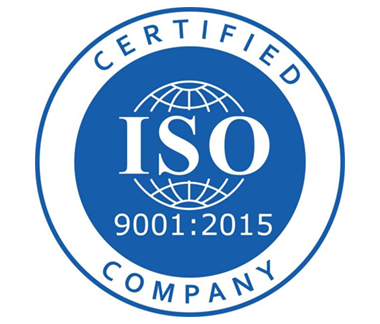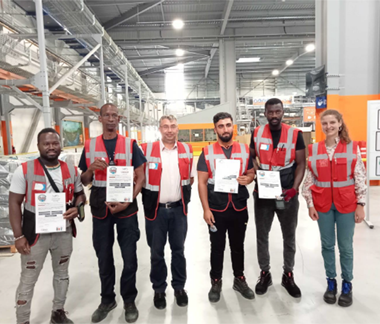Viaposte, a heavyweight in the ecological transition of road transport
In France, the road haulage sector, of which Viaposte is a major player as a freight forwarder, is currently looking for cleaner fuels that reduce CO2 emissions while maintaining refuelling conditions and range comparable to diesel.
"Heavy transport is the most complex to decarbonise due to current technological limitations. There is no single solution. That's why we at Viaposte have decided to deploy an array of solutions," says Christophe Baboin, Managing Director of Viaposte's Transport business.
Biogas, electricity and hydrogen: Viaposte is increasing its initiatives
After the inauguration of its first CNG station in early 2021 at one of its logistics platforms in the Ile-de-France region (department 77), Viaposte has carried out a number of other initiatives hand in hand with its 600 partner transporters:
- The introduction of an electric truck, followed by two others since then, on behalf of La Poste / Colissimo
- The signature of an opinion piece on the issue of transport and ecological transition; addressed to MEPs, the European Directorates General CLIMA, MOVE, GROW and the advisors of the relevant French ministries
- Participation in a coalition for the hydrogen retrofitting of 10,000 trucks per year
- The organisation for the 2nd consecutive year of an annual meeting bringing together its largest transport partners around the issue of decarbonisation and joint actions
- The provision by 2030 of a tool to calculate the cost of decarbonisation
- The switch of several transport links to green energy, including more than 225,000 km on biogas since the beginning of the year and 1.3 million km on biofuel.
Biofuels as an immediate alternative
Viaposte has teamed up with several of its national and regional transport partners to start switching some of its customers' diesel and gasoline routes to HVO and B100 biofuels.
These liquid fuels, which are produced by processing plant materials such as wheat, rape, sunflower or potatoes, as well as waste products such as cooking oil or animal fats, could reduce greenhouse gas emissions by more than 60%.
The choice of HVO with Ouzouer transport
With the aim of switching its entire fleet of HGVs to HVO biofuel, i.e. 7 vehicles, and following the installation of a 22,000 L tank at its Beauce-la-Romaine site (41), Ouzouer's partner has enabled Viaposte to switch seven of its transport links in the Centre-Val de Loire region to HVO. This corresponds to 405,450 km/year that are now run on biofuel.
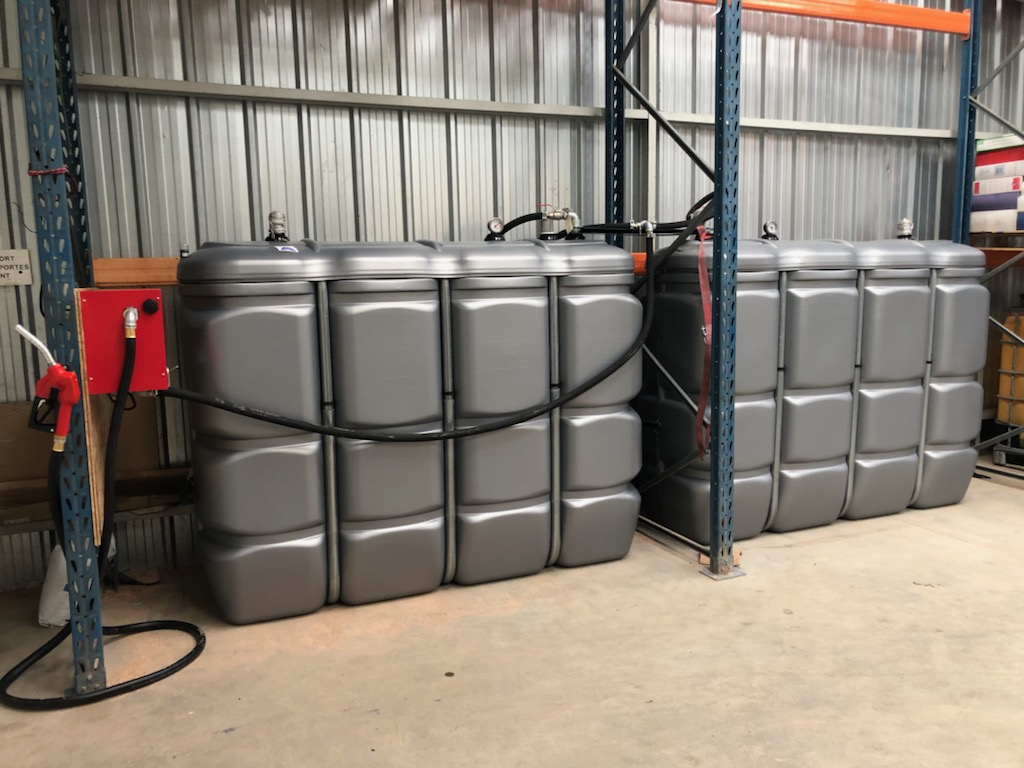
"I suggested to Viaposte that we switch to HVO biofuel because it is an economical solution for decarbonising transport and does not require any specific adaptation to the vehicles," says Mr Béguin, manager of Ouzouer transport.
For the same amount of energy burned, HVO would reduce :
- CO2 by 65%
- 85% less fine particles compared to diesel
- Almost zero NOx emissions.
Switching a link to the B100 with Couvert Muret transport
Viaposte has switched new transport links to B100 in the Pays-de-la-Loire area thanks to Couvert Muret transport. 141,472 km / year are now decarbonised.
"As we had already done with several customers in the Nantes area, we proposed to Viaposte to convert part of our routes to the use of OLEO 100 fuel. Our company wants to have a clear CSR strategy that is acceptable to our customers in terms of costs, technical constraints, etc.
These links are a first step before further development. As far as the B100 is concerned, we currently have three private tanks on our sites, which account for around 25% of our total fleet. We are also studying all the existing alternatives such as biogas and above all, electricity," explains Mr Baudoin, manager of Couvert Muret transport.
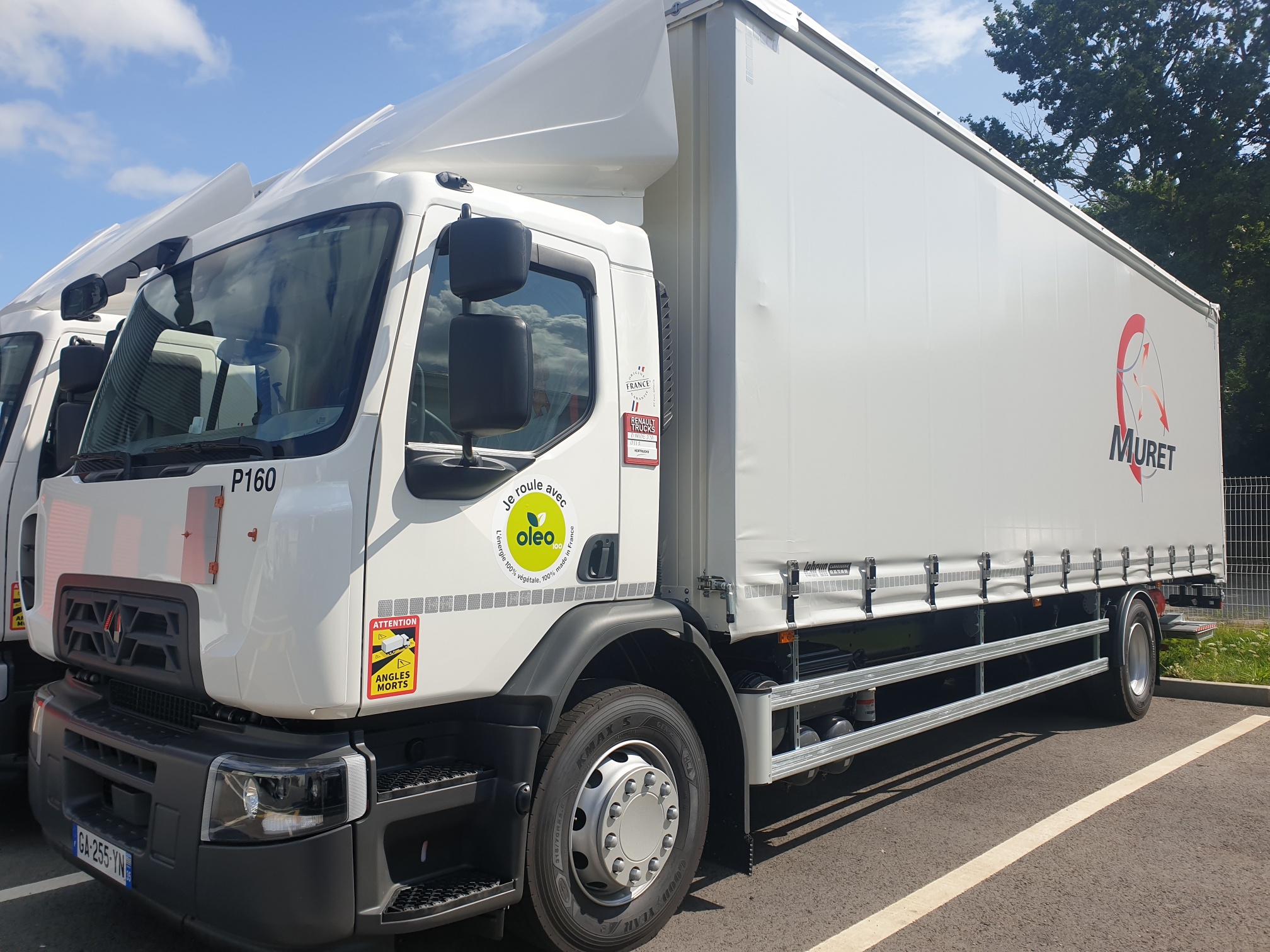
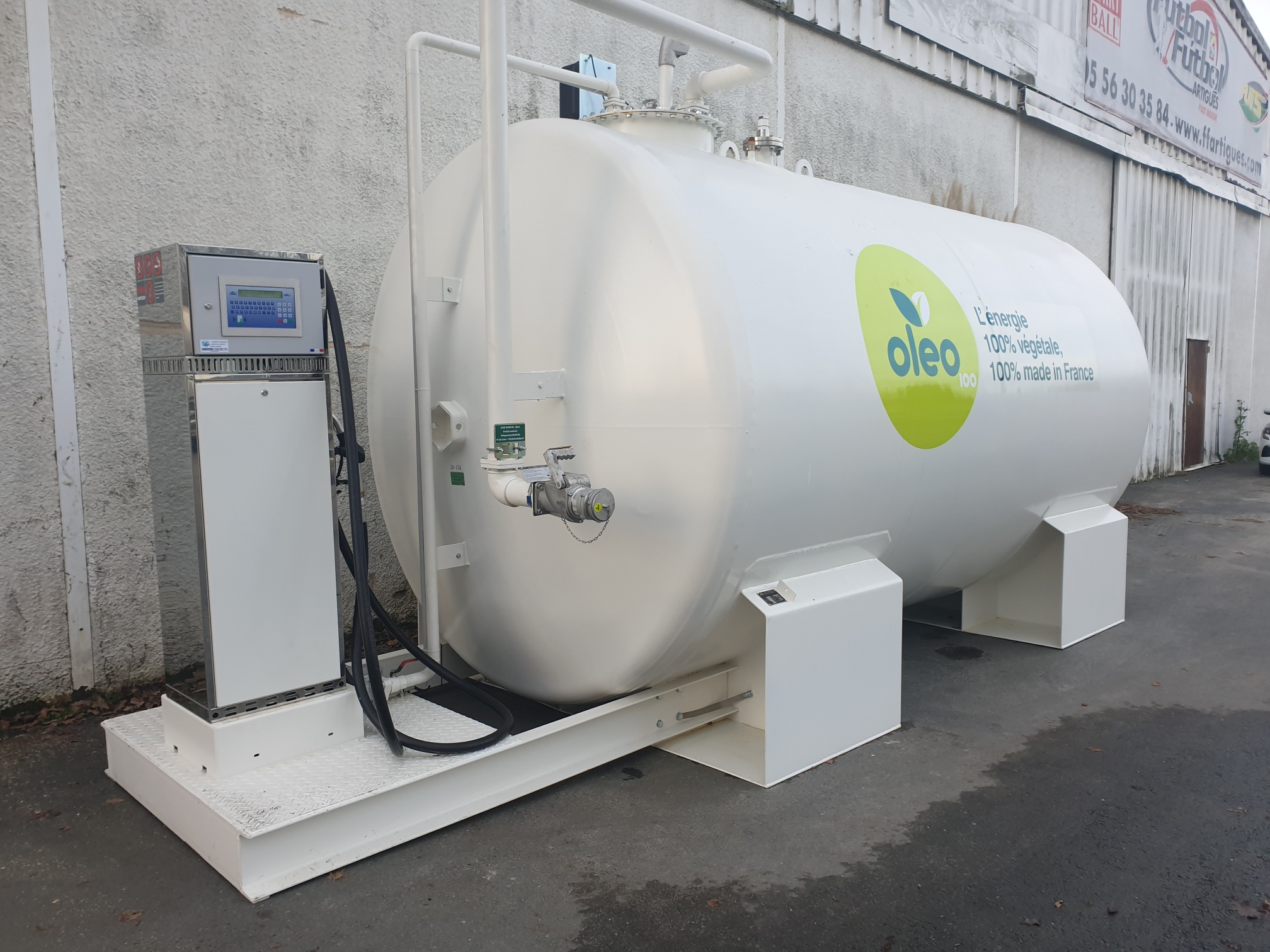
The B100, made from 100% French rapeseed produced in France, would allow the reduction of :
- 60% less greenhouse gas emissions compared to diesel
- 80% of fine and ultrafine particle emissions.





